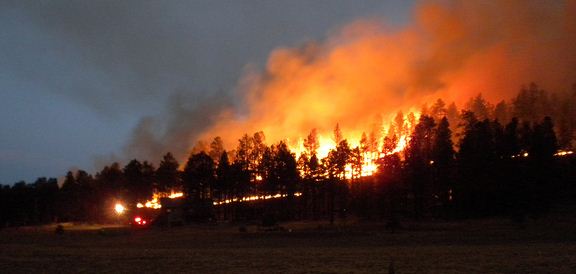
It’s Hard to Say What You Mean When You’re the Expert
And it’s particularly hard to say what you mean under duress.
That’s why, during Arizona’s 2011 Wallow Fire — an arson conflagration that took weeks to control — I thought twice about using fire department communications to illustrate how hard it is for techies (and all of us) to speak in non-work-related language.
In the end, though, I couldn’t pass up this example, from the statement of an Arizona fire official. He was explaining, in an NPR interview, that:
Rain doesn’t necessarily help, because when the soil has been dried out by fire, you can get a lack of infiltration of water.
I understood this (most people probably did); but I also heard, at the back of my mind, the simpler words he might have said:
…when the soil is dry, it doesn’t absorb water.
Was the fire official “wrong” to speak like the specialist he is?
Absolutely not!
This guy had other things on his mind than simultaneously translating the terms of art he uses at work into simpler language that the rest of us could more easily understand.
But many of us who deal with non-life-threatening situations routinely sound just as stiff!
So whether you’re a techie, nerd, or geek; or a doctor, lawyer, or speaker coach — try to stick with plain English and say what you mean. You won’t sound less accomplished; you’ll just be easier to understand.
And your listeners will appreciate it.
